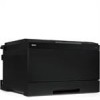Dell 5130 Color Laser User's Guide (PDF) - Page 82
Network Connection Setup, For installing XPS printer driver, Network Printer Setup on a Local Network
 |
View all Dell 5130 Color Laser manuals
Add to My Manuals
Save this manual to your list of manuals |
Page 82 highlights
NOTE: If the installation software does not automatically proceed to the next page, click Install. 4. Select either Typical Installation or Custom Installation from the installation wizard, and then click Install. If you select Custom Installation, you can select the specific software you want to install. 5. Click Finish to exit the wizard when the Congratulations! screen appears. If necessary, click Print Test Page to print a test page. USB Printing A personal printer is a printer attached to your computer or a print server using a USB. If your printer is attached to a network and not your computer, see "Network Connection Setup." For installing XPS printer driver NOTE: XPS driver is supported on the following operating systems: Windows 7, Windows 7 x64, Windows Vista, Windows Vista x64, Windows Server 2008 R2 x64, Windows Server 2008, and Windows Server 2008 x64. 1. Uncompress the following folder on the desktop, etc. D:\Drivers\XPS\Win_VistaXP2K\XPS_5130.zip(where D is the drive letter of your CD) 2. Click start ® Control Panel ® Hardware and Sound (only for Windows Vista) ® Printers. 3. Click Add a printer to launch the Add Printer wizard. 4. Click Add a local printer. 5. Select the port connected to this product and click Next. 6. Specify the printer model. Click Have Disk to display the Install From Disk dialog box. 7. Select the folder uncompressed in step 1. 8. A dialog box to specify printer name is displayed. To change the printer name, enter the printer name in the Printer name box. To use this printer as the default printer, check on the check box displayed under the Printer name. 9. Installation starts. If the User Account Control Continue dialog box appears asking whether to continue the installation in the middle of installation, click Continue . NOTE: Depending on User's right, which you logged in with, Administrator name and password may be required. In that case, enter the Administrator name and password. 10. The driver installation is completed. If necessary, click Print Test Page to print a test page. Network Connection Setup NOTE: To use this printer in a UNIX or Linux environment, you need to install a UX Filter or Linux Driver. For more information on how to install and use these, see "Printing With UX Filter (UNIX)" and "Printing With CUPS (Linux)." NOTE: When using a CD drive in a Linux environment, you need to mount the CD according to your system environment. The command strings are mount/media/cdrom. Network Printer Setup on a Local Network For installing PS and PCL printer driver 1. Click Software Installation to launch the installation software. 2. Select Network Installation, and then click Next. 3. Select Local Installation, and then click Next. 4. Select the printer you want to install from the printer list, and then click Next. If the target printer is not displayed on the list, click Refresh to refresh the list or click Add Printer to add a printer to the list manually. You may specify the IP address and port name at this point. If you have installed this printer on the server computer, select the I am setting up this printer on a server check box. NOTE: When using AutoIP, 0.0.0.0 is displayed in the installer. Before you can continue, you must enter a valid IP address. NOTE: In some cases, Windows Security Alert is displayed in this step when you use Windows Vista, Windows Vista 64-bit Edition, Windows Server 2008, Windows Server 2008 64-bit Edition, Windows Server 2008 R2 64-bit Edition, Windows 7, or Windows 7 64-bit Edition. In this case, select Unblock (Allow access for Windows Server 2008 R2 and Windows 7), and then continue the procedure. 5. Specify the printer settings, and then click Next. a. Enter the printer name. b. If you want other users on the network to access this printer, select Share this printer with other computers on the network, and then enter a share name that users will easily identify. c. If you want to set a printer as the default, select the Set this printer as default check box. d. If you want to restrict color printing, select the appropriate Dell ColorTrack option. Enter the password when Color-Password Enabled is selected for Dell ColorTrack.















